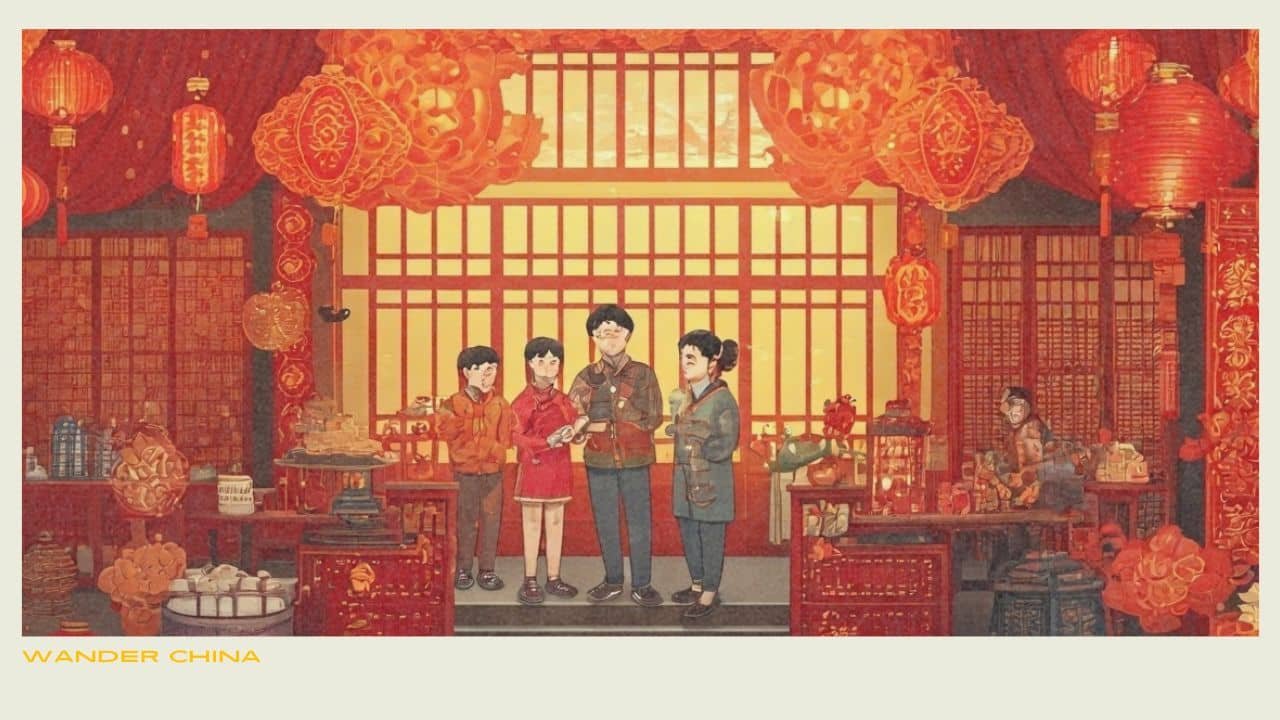Exploring Norms in Chinese Culture: Traditions and Identity
Dive into the traditions and identity of Chinese culture with insights on norms in Chinese culture. Explore more on our blog!

Key Highlights
- Confucianism’s Influence: This philosophy shapes Chinese behavior. It values respect for elders, the importance of hierarchy, and keeping good relationships.
- Family First: Family is very close to the heart of Chinese culture. A strong focus goes on respecting ancestors and staying united as a family.
- “Face” Matters: The concept of “face” is very important. It means people try to do things that protect their honor and social status and avoid shame.
- Guanxi: The Power of Connections: Creating good networks and strong relationships, known as “guanxi,” is important for success in both business and social life.
- Ancient Arts Endure: Traditional arts such as calligraphy, painting, and opera are still key to Chinese culture. They display the rich history and values of the Chinese people.
Chinese culture has a long history and strong traditions. It includes a variety of values, customs, and habits. Harmony is very important in Chinese society. It influences both personal relationships and business dealings. When we look at Chinese cultural norms, we can understand the values that influence this lively nation. Some key values include the importance of family, respect for elders, the idea of “face,” and the meaning of “guanxi.”
Understanding the Foundations of Chinese Culture
Chinese culture has a rich history that dates back thousands of years. It is built on unique ideas and traditions that define its identity. A major part of Chinese culture is a strong love for history and heritage. This creates a deep connection to the past and shows respect for old customs.
This love for heritage is clear in many areas of Chinese life. You can see it in their traditional arts, festivals, social customs, and family values. The culture respects ancestors, values knowledge from the past, and celebrates the beauty of old traditions.
The Role of Confucianism in Shaping Social Conduct
Confucianism is important in Chinese culture. It has shaped how people behave for many years. This belief system focuses on values like kindness, harmony in society, and respect for those in charge. It helps people know how to act and relate to each other.
A key idea in Confucianism is filial piety. This means you should respect, obey, and take care of your parents and elders. You need to show this respect in all kinds of relationships. It helps create a society that values respect and authority.
Confucian values shape how people connect in many ways, such as in their families and jobs. They focus on the need to meet roles and responsibilities, emphasizing the importance of showing deference. This builds a culture that values respect, order, and harmony in society.
The Significance of Family Values and Filial Piety
In Chinese society, family values are very important. They help bring people together and are a big part of Chinese culture. Family gives a sense of belonging and helps shape who we are. Inside families, people share traditions, learn important values, and create strong bonds.
Filial piety is an important idea in family values. It means showing respect, obedience, and care for your parents and older people. It teaches kids to honor their parents’ wishes. It also encourages them to take care of their parents and to look after the family’s reputation.
The idea of family means more than just those who live with us. It also includes our extended family and our ancestors. Family reunions are important events. They help us keep strong ties within the family. They remind us how crucial it is for families to stay close.
Traditional Festivals and Their Impact on Chinese Identity
Traditional festivals show the lively spirit of Chinese culture. Each festival has symbols, rituals, and a shared history. These events are shared through generations. They help families and communities unite. People celebrate their heritage and strengthen their cultural identity.
From the happy meetings at Spring Festival to the lantern-lit nights of Mid-Autumn Festival, these traditions mark the year. They link Chinese people to their past and to one another. They also highlight the values, beliefs, and customs that make this culture strong and lasting.
Spring Festival: A Time for Family Reunion and Renewal
The Spring Festival, or Chinese New Year, is the biggest holiday in Chinese culture. It marks the start of the lunar year. During this time, families come together. People reflect on the past year and hope for the future.
In China, cities and villages are full of bright decorations. People have fun with lively lion and dragon dances. You can hear the happy sound of firecrackers in the air. Families come together to enjoy large meals, share gifts, and strengthen their bonds after a busy year and time apart.
The Spring Festival is a time to start fresh. You can release past pains and greet new beginnings. This festival is all about life, family, and the rich spirit of Chinese culture.
Mid-Autumn Festival: Mooncakes, Lanterns, and Legends
The Mid-Autumn Festival takes place when the full moon shines softly in fall. It is a time for families to come together and spend time with one another. They celebrate the harvest of the year. This night is lovely, filled with tales from the past and tasty mooncakes.
As families enjoy these tasty treats, they tell the story of Chang’e, the moon goddess, and her friend, the jade rabbit. Kids love to carry bright lanterns. The shining lights from the lanterns represent hope and good luck.
The Mid-Autumn Festival shows us how important it is to be together with our family. It reminds us of the circle of life. This time encourages us to appreciate what the earth provides and enjoy the beauty of nature.
The Concept of “Face” in Chinese Society
In Chinese society, the concept of “face” is very important. It shows a person’s reputation, honor, and status. When someone gains “face,” they earn respect and admiration from people. However, if a person “loses face,” it can lead to shame and a lower position in society.
This idea affects how people relate to each other in everyday life and in business. To understand Chinese culture, it is important to know the meaning of “face.”
How “Saving Face” Influences Personal Interactions
The need to “save face” is very important in Chinese culture. It affects how people talk and interact with each other, fostering a sense of humility. This desire shows the values of harmony, respect, and order in their society.
“Saving face” means staying away from actions or words that might embarrass you or someone else. This is why many people like to talk indirectly. They often give gentle feedback and are careful when dealing with arguments.
In Chinese society, the concept of “face” is vital for gaining respect. It allows people to maintain their dignity and develop trust. This practice encourages harmony among everyone.
“Losing Face”: Social Implications and Avoidance Strategies
“Losing face” is very important in Chinese culture. It can hurt relationships and reputations. It can also make people feel shame and loneliness. Because of this, many try to avoid situations that might lead to losing face.
In China, people often talk in a way that is indirect to avoid causing embarrassment. This indirect communication style means they try not to directly confront each other. When someone has to give criticism, they usually do it softly or ask someone else to say it. The main purpose is to maintain harmony and reduce conflict.
To grasp this part of the culture, you should be gentle and thoughtful. It’s important to read between the lines. Understanding what “face” means can help you build strong and respectful relationships in Chinese society.
Chinese Etiquette and Social Norms
Chinese etiquette has rules and customs that have grown over time. These rules show how much the culture values respect, hierarchy, and good relationships, including the use of professional titles. They help you know the right way to greet people, give gifts, and behave during meals. By following these rules, you can connect with others in a respectful and thoughtful way.
If you visit China or work with Chinese coworkers, it’s important to understand their customs and the significance of Chinese culture places. Respecting these customs shows that you value their culture. This can help you create better relationships.
Greetings, Gestures, and Gift-Giving Traditions
In China, people often greet each other with a simple handshake, especially in formal situations. It is also important to show respect to elders and those in authority. You can do this by bowing your head slightly. This movement is a sign of respect.
In Chinese culture, giving gifts means a lot. It shows kindness and helps create strong relationships. When you give a gift, it’s polite to use both hands to show respect. Usually, the person who gets the gift will politely refuse it several times before they accept it.
Chinese culture values being humble. Because of this, people usually open gifts in private. This way, they can avoid feelin’ embarrassed if the gift is too fancy. Knowing this can help you make a good impression.
Dining Etiquette: From Chopstick Rules to Seating Arrangements
Dining together is really important in Chinese culture. It helps build friendships and make connections stronger. Following dining rules shows respect for your hosts and the other guests, especially when using your rice bowl during the meal. Here are some key points to keep in mind:
- Chopstick Etiquette: Don’t place your chopsticks upright in a bowl of rice. This is seen as something for the dead. Instead, lay them flat on your plate or use a chopstick rest.
- Sharing Dishes: In China, meals often have shared dishes in the middle of the table. It’s polite to use the serving spoons provided instead of your chopsticks when getting food from these dishes.
- Toasting Traditions: Toasting during meals is a common practice in China. If someone toasts at you, it’s nice to toast back.
The Role of Guanxi in Business and Personal Relationships
In Chinese society, “guanxi” is very important. It means creating and using social connections. This idea is a big part of business and personal relationships.
“Guanxi” means more than just knowing someone. It is about having trust and helping each other. This idea shows how people are linked together and emphasizes the value of social connections. In Chinese culture, strong personal relationships are very important.
Building and Maintaining Connections: Beyond Networking
The idea of “guanxi” is more than just meeting new people. It is about building real and lasting connections based on the concept of guanxi. These connections depend on trust, respect, and a desire to help each other. In a Chinese workplace, this leads to better teamwork, easier deals, and more chances for business.
Building “guanxi” takes time and work. It means having nice talks, really caring about people, and being willing to help. Chinese workers often hang out with their colleagues after work, and this practice sometimes leads to overtime, helping them create bonds that benefit them at their jobs.
It’s key to understand that “guanxi” works both ways. It is not just about what you get, but also about what you give. Acknowledging and returning favors is important for building and maintaining strong and supportive relationships.
Guanxi’s Influence on Business Practices and Success
The concept of “guanxi” plays a big role in business in China. It influences how people negotiate, make choices, build partnerships, and enter markets. For foreign companies looking to operate in China, it’s important to understand and handle the challenges of “guanxi.”
Building good “guanxi” helps you connect with important people and makes talking easier. It creates trust, which is key in Chinese business culture. When you plan a business meeting, using your current connections is helpful. This can lead to introductions and ensure that the meeting feels valuable.
| Guanxi in Business: Key Considerations |
|---|
| Building Trust: Invest time in developing genuine relationships, demonstrating reliability, and honoring commitments. |
| Reciprocity is Key: Understand that “guanxi” is built on mutual benefit, offering and reciprocating favors to strengthen bonds. |
| Cultural Sensitivity: Respect Chinese customs, such as gift-giving etiquette and the importance of hierarchy. |
| Long-Term Perspective: View “guanxi” as a long-term investment, nurturing relationships over time to build trust and understanding. |
Traditional Arts and Their Place in Modern China
Traditional Chinese arts, like calligraphy and Peking opera, are closely tied to the deep culture of China. These art forms have passed from masters to students for many years. Today, they continue to attract many people. They show the beauty of Chinese ideas and beliefs.
China keeps its art traditions alive, even as things change. This lets these cultural treasures grow and remain significant today. They show us a glimpse into Chinese culture. They reveal its values, history, and strong spirit.
Calligraphy and Painting: Expressions of Elegance and Harmony
Calligraphy is an important art in Chinese culture. It is not just about writing. It shows deep thoughts and beauty. Every brushstroke is done carefully. It expresses words, emotions, and the artist’s spirit.
Chinese painting is closely linked to calligraphy. They often use the same tools and methods. This art features lovely landscapes, delicate flowers, and powerful faces. Both calligraphy and painting focus on balance and harmony. They also use empty spaces to make a calm atmosphere.
These traditional arts are not just for museums. They are part of everyday life in Chinese society. You can see them in homes, tea houses, and public spaces. They help us remember the rich history of art in China.
The Enduring Popularity of Traditional Chinese Opera
Chinese opera is enjoyed by many because of its beautiful costumes, unique movements, and interesting stories. This art form has been around for many centuries. It blends music, drama, acrobatics, and martial arts to create a special experience.
There are several types of Chinese opera. The most well-known is Peking opera. Other forms are Kunqu and Cantonese opera. These shows tell stories about love, loyalty, betrayal, and history. The costumes and makeup have special meanings. People who understand the traditions can enjoy these details much more.
Chinese opera still draws in new fans, even with many modern entertainment choices. This helps keep this vibrant art form alive within the culture. It shows how powerful traditions tie people to their history and identity.
Conclusion
In conclusion, Chinese culture is full of important traditions. It is built on Confucianism and values family, reflecting the true nature of the Chinese people. Festivals like the Spring Festival and Mid-Autumn Festival bring people together. Another key idea is “face.” This shows how respect and harmony matter in personal and work relationships. As China becomes more modern, we should keep traditional arts like calligraphy and Chinese opera alive. These art forms help us remember its rich heritage. By learning about these customs, we can better understand Chinese society. Share your thoughts in the comments below.
Frequently Asked Questions
What are some common misconceptions about Chinese culture?
One common mistake is thinking that Chinese society is the same everywhere. In fact, the People’s Republic of China, or the People’s Republic, is a large and varied country. It has many different customs, languages, and traditions.
How do traditional values fit into today’s Chinese society?
A Chinese person values traditions such as family, respect, hard work, and punctuality. They accept modern changes but still hold these important values in their daily lives. These traditions help them feel connected to their culture. They also give a sense of stability in a fast-changing world.
What is the importance of tea culture in China?
Tea culture in China means more than just drinking tea. When you offer tea, it is a sign of respect. You can notice this practice at formal events and business meetings. It shows how much people care about hospitality. This practice helps to create a warm and friendly atmosphere.
How is the concept of harmony reflected in everyday life?
In Chinese society, the idea of harmony is very important. It affects how people talk and interact with each other. This idea promotes being polite, humble, and keeping positive relationships.
Recent Posts
- Best Guangzhou Motorcycle Parts Wholesale Markets: Top Places to Buy Spares & Accessories
- Best Home Decoration Markets in Guangzhou: Top Places to Buy Decor & Furniture
- Best Chinese E-commerce Platforms for International Buyers: Top Sites Compared
- Best Expat Neighborhoods in Guangzhou: Where Foreigners Actually Live
- Best Fabric Markets in Guangzhou (My Expat Directory)
Recent Comments
Best Guangzhou Motorcycle Parts Wholesale Markets: Top Places to Buy Spares & Accessories
A guide to Guangzhou’s best motorcycle parts wholesale markets, with bilingual names,...
Best Home Decoration Markets in Guangzhou: Top Places to Buy Decor & Furniture
Guangzhou’s best home decoration markets, from small decor wholesale (Yide Rd) to...
Best Chinese E-commerce Platforms for International Buyers: Top Sites Compared
Best Chinese e-commerce platforms for international buyers, based on B2C vs wholesale...
Best Expat Neighborhoods in Guangzhou: Where Foreigners Actually Live
A guide to the best expat neighborhoods in Guangzhou, with metro stations,...







Leave a comment